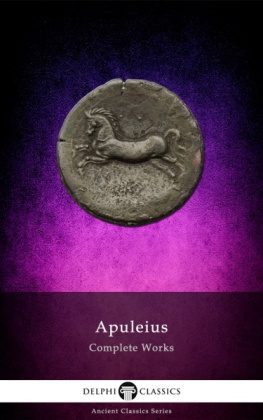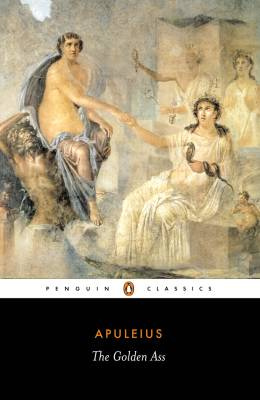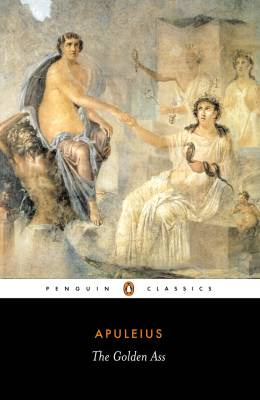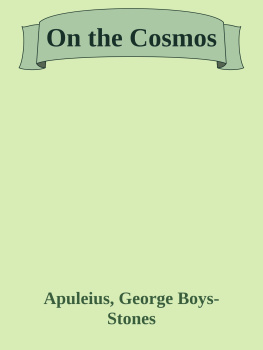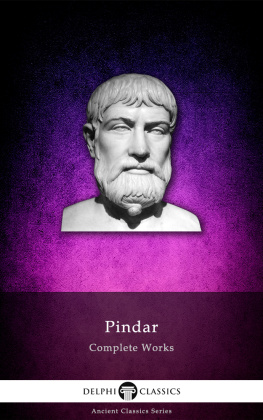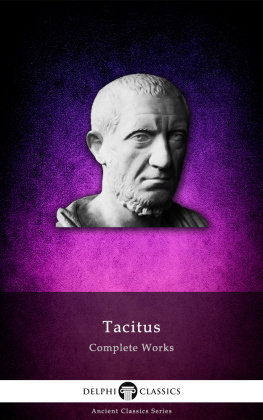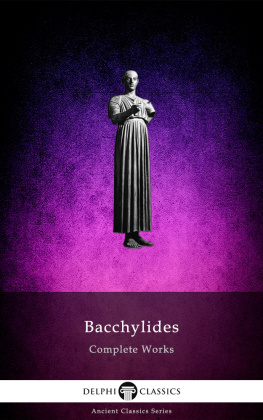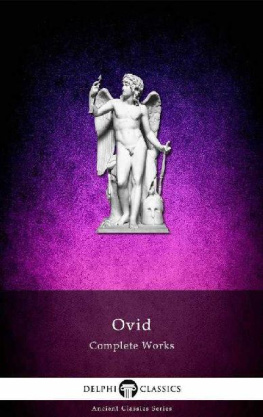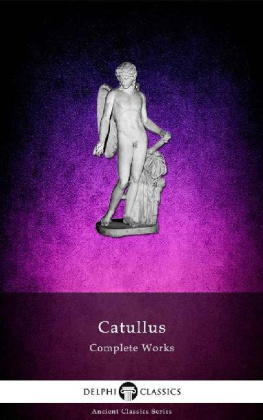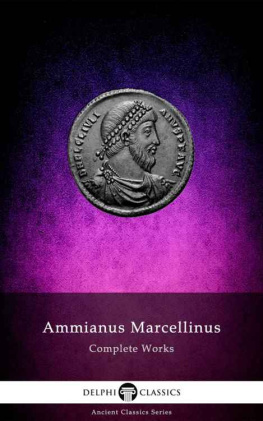
The Complete Works of
APULEIUS
(c. 124 c. 170 AD)

Contents

Delphi Classics 2015
Version 1

The Complete Works of
APULEIUS

By Delphi Classics, 2015
The Translations

MDaourouch, Algeria, ancient Madaurus, a Roman colony in Numidia on the North African coast Apuleius birthplace
METAMORPHOSES INTRODUCTION

Apuleius Metamorphoses is the only Roman novel to survive in its entirety. The narrative concerns Lucius, a young man from Madaurus, in ancient Algeria, the birthplace of the author himself, and revolves around the protagonists insatiable desire to see and practice magic. However, when trying to perform a spell to transform himself into a bird, Lucius is accidentally transformed into an ass. This leads to a journey of many comical adventures, featuring others tale framed within the main narrative. Lucius finally finds salvation through the intervention of the goddess Isis, whose cult he joins.
The date of composition of the Metamorphoses remains uncertain. It has variously been considered by scholars as a youthful work, preceding Apuleius Apology of c. 158 AD, while others argue that it is the climax of his literary career, having been written as late as 180 AD. Apuleius adapted his novel from a Greek original of which the authors name is said to be Lucius of Patrae, though the Greek text has been lost. Another similar tale, titled Lucius or The Ass , which is of disputed authorship, has been traditionally attributed to Lucian of Samosata, a contemporary of Apuleius. This extant Greek text appears to be an abridgement or epitome of Lucius of Patraes original text. Possibly the original lost story was written by Lucian and the abridged version was later transmitted under his name.
Apuleius novel opens with a prologue, introducing Lucius, who explains his location, education, and occupation. The narrator journeys to Thessaly on business and while on his journey, he runs into Aristomenes and an unnamed traveller. The unnamed traveller refuses to believe Aristomenes story. The narrator scolds the unnamed traveller and tells a short story about a sword swallower. He promises Aristomenes a free lunch if he will retell his tale. Lucius believes Aristomenes tale and becomes more eager to learn about magic. When he arrives at Hypata, where he stays with Milo, a family friend and miser and his wife Pamphile, Photis, Milos servant, takes Lucius to the baths, after which Lucius goes to the marketplace. There, he buys some fish and runs into his old friend Pytheas, who is now a magistrate. When Lucius returns to Milos house, his host asks him about his life, his friends and his wanderings.
St. Augustine referred to Apuleius Metamorphoses as The Golden Ass (Asinus aureus) and this title is now the most widely used to refer to the novel. The episodic structure inspired the style of numerous picaresque novels in the eighteenth century, including such works as Tristram Shandy , Moll Flanders and Tom Jones . The ancient text is an imaginative, irreverent, and amusing narrative, relating Lucius ludicrous adventures. Finding himself in Thessaly, the birthplace of magic, he eagerly seeks an opportunity to see magic being used. His over enthusiasm leads to his accidental transformation into an ass. In this guise, Lucius, as a member of the Roman country aristocracy, is forced to witness and share the miseries of slaves and destitute freemen who are reduced, like Lucius, to being little more than beasts of burden due to their exploitation at the hands of wealthy landowners. Numerous amusing stories, many of which are based on actual folk tales, with their ordinary themes of simple-minded husbands, adulterous wives and cunning lovers, as well as the magical transformations that characterise the novel, are included within the main narrative. The longest of these inclusions is the famous tale of Cupid and Psyche, introduced here for the first time in extant literature.

A 1345 illustration depicting Lucius taking human form

Psyche and Amor by William-Adolphe Bouguereau, 1889 the tale of these two lovers is the novels most famous feature, as related in Book IV

The wife and her lover, illustrated by Jean de Bosschre The Tale of the Wife's Tub in Book IX is one of the novels most amusing tales
METAMORPHOSES: WILLIAM ADLINGTON TRANSLATION, 1566

CONTENTS
DEDICATION
To the Right Honourable and Mighty Lord, THOMAS EARLE OF SUSSEX, Viscount Fitzwalter, Lord of Egremont and of Burnell, Knight of the most noble Order of the Garter, Iustice of the forrests and Chases from Trent Southward; Captain of the Gentleman Pensioners of the House of the QUEENE our Soveraigne Lady.
After that I had taken upon me (right Honourable) in manner of that unlearned and foolish Poet, Cherillus, who rashly and unadvisedly wrought a big volume in verses, of the valiant prowesse of Alexander the Great, to translate this present booke, contayning the Metamorphosis of Lucius Apuleius; being mooved thereunto by the right pleasant pastime and delectable matter therein; I eftsoones consulted with myself, to whom I might best offer so pleasant and worthy a work, devised by the author, it being now barbarously and simply framed in our English tongue. And after long deliberation had, your honourable lordship came to my remembrance, a man much more worthy, than to whom so homely and rude a translation should be presented. But when I again remembred the jesting and sportfull matter of the booke, unfit to be offered to any man of gravity and wisdome, I was wholly determined to make no Epistle Dedicatory at all; till as now of late perswaded thereunto by my friends, I have boldly enterprised to offer the same to your Lordship, who as I trust wil accept the same, than if it did entreat of some serious and lofty matter, light and merry, yet the effect thereof tendeth to a good and vertuous moral, as in the following Epistle to the reader may be declared. For so have all writers in times past employed their travell and labours, that their posterity might receive some fruitfull profit by the same. And therfore the poets feined not their fables in vain, considering that children in time of their first studies, are very much allured thereby to proceed to more grave and deepe studies and disciplines, whereas their mindes would quickly loath the wise and prudent workes of learned men, wherein in such unripe years they take no spark of delectation at all. And not only that profit ariseth to children by such feined fables, but also the vertues of men are covertly thereby commended, and their vices discommended and abhorred. For by the fable of Actaeon, where it is feigned that he saw Diana washing her selfe in a well, hee was immediately turned into an Hart, and so was slain of his own Dogs; may bee meant, That when a man casteth his eyes on the vain and soone fading beauty of the world, consenting thereto in his minde, hee seemeth to bee turned into a brute beast, and so to be slain by the inordinate desire of his owne affects. By Tantalus that stands in the midst of the floud Eridan, having before him a tree laden with pleasant apples, he being neverthelesse always thirsty and hungry, betokeneth the insatiable desires of covetous persons. The fables of Atreus, Thiestes, Tereus and Progne signifieth the wicked and abhominable facts wrought and attempted by mortall men. The fall of Icarus is an example to proud and arrogant persons, that weeneth to climb up to the heavens. By Mydas, who obtained of Bacchus, that all things which he touched might be gold, is carped the foul sin of avarice. By Phaeton, that unskilfully took in hand to rule the chariot of the Sunne, are represented those persons which attempt things passing their power and capacity. By Castor and Pollux, turned into a signe in heaven called Gemini, is signified, that vertuous and godly persons shall be rewarded after life with perpetuall blisse. And in this feined jest of Lucius Apuleius is comprehended a figure of mans life, ministring most sweet and delectable matter, to such as shall be desirous to reade the same. The which if your honourable lordship shall accept ant take in good part, I shall not onely thinke my small travell and labour well employed, but also receive a further comfort to attempt some more serious matter, which may be more acceptable to your Lordship: desiring the same to excuse my rash and bold enterprise at this time, as I nothing doubt of your Lordships goodnesse. To whome I beseech Almighty God to impart long life, with encrease of much honour.
Next page
